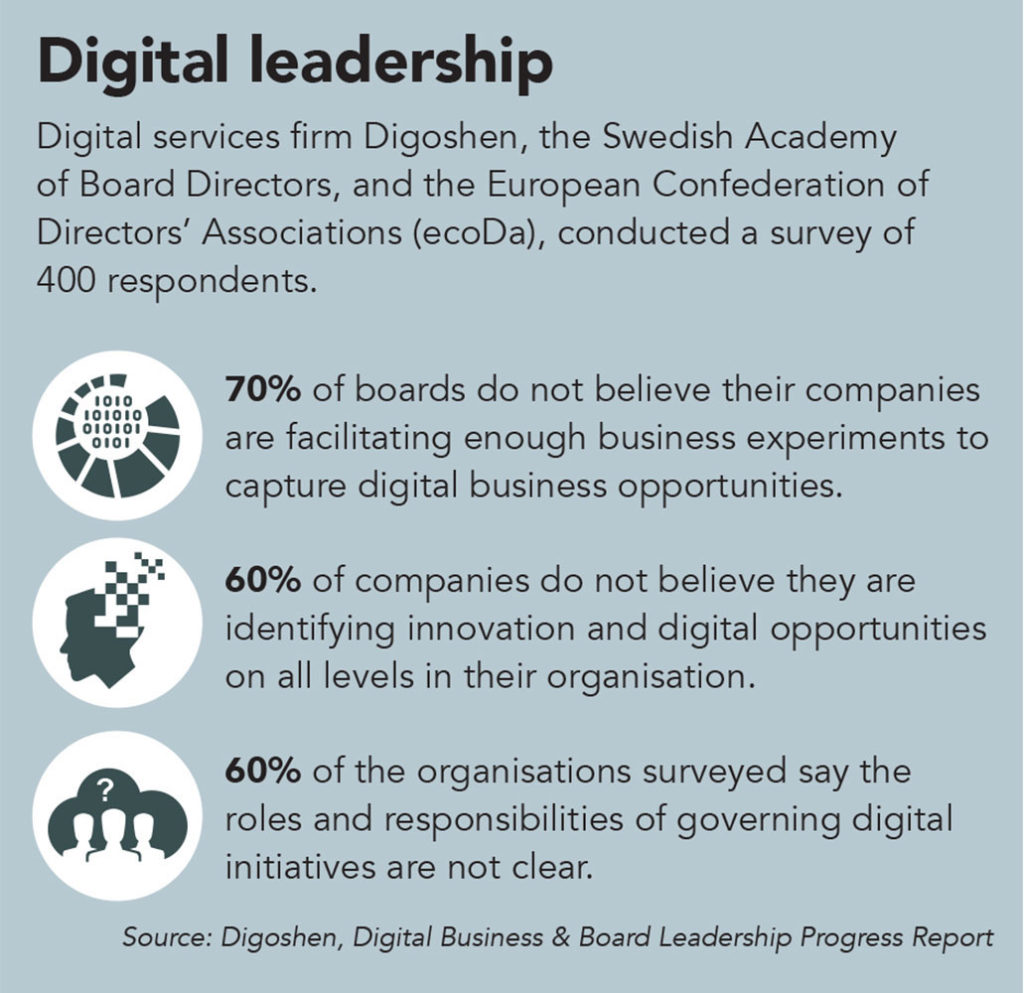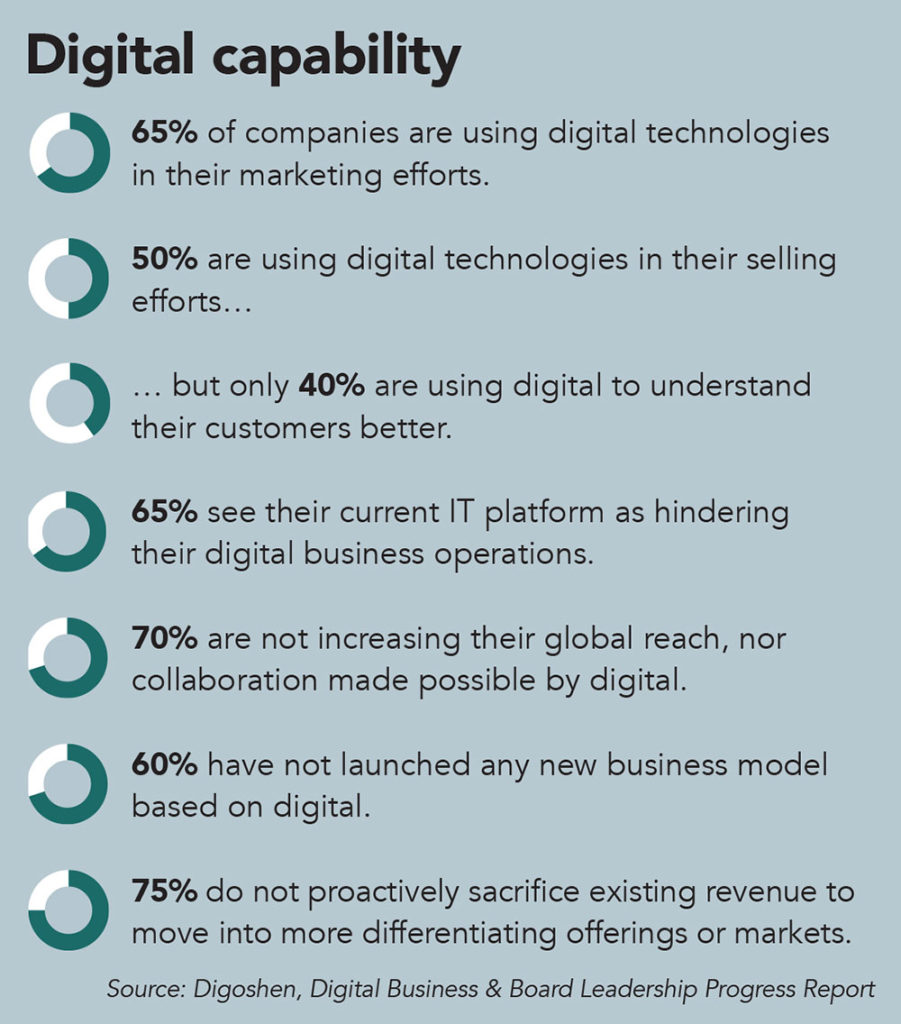It is 7am in 2025 and you’re in a driverless electric Uber car whizzing you to work in the City. You’re on Skype talking to one of your Chinese colleagues in Beijing, who doesn’t speak English. And you don’t speak Mandarin. No problemo. Skype is translating your conversation as you chat.
Once you arrive in the office, you remember the heating was left on at home. No sweat. A quick call connects you to Robert the robot—doing the housework among other chores—who adjusts the boiler. Then one of your apps starts beeping: your blood pressure is a little high this morning—that must be down to the new loans you took out on Amazon via Blockchain.
While on the health app, you check other vital signs like your hormonal cycles and pulse rate. Any medicines you might need can be made up according to your data stored with the NHS, and delivered to you personally after being created by a 3D printer. Oh, and you remember that your mascara has run out, so you check the app that measures how often your eyes blink, helping to find the best mascara for you.
Don’t laugh. This is not some fantasy Star-Trekkian vision of the future, but a picture of everyday life only a few years away. Many of the technological advances described above are with us already, or ready to go live soon. As someone very wise once said, the future is here, but it has yet to be evenly distributed.
Mission-critical?
Yet how many companies that will have to use, adopt and adapt to the technology behind these extraordinary changes are ready for the challenge? Are they mission-critical? And, if not, what should they be doing to prepare themselves?
Antony Jenkins, the former chief executive of Barclays and founder of fintech start-up 10x Future Technologies, fears that most bank boards fail to understand the enormity of change about to hit them.
–Antony Jenkins, banking entrepreneur
“We are in a period of big tectonic shifts, which will disrupt all industries, from financial services to law and accountancy. These industries will see revolutionary changes similar to those which have disrupted media, retail and music. Banking is going to have an Uber moment.”
Jenkins, who is chairman of 10x and on the board of Blockchain, adds: “Banking as we know it is gone. With new technologies, the concept of the intermediary is over.
“New nimble technology challengers will steal market share from the banks and with all the new data being built in the cloud, [they] will be able to offer customers credit cards, loans and mortgages within hours of applying for them. And they will be fairer, cheaper and more transparent.”
 Bring in the experts
Bring in the experts
If bank boards want to stay ahead of the curve, Jenkins suggests that all CEOs employ top digital-cum-technology experts, who in turn create a small group of more experts around him or her to look into the transformational issues affecting the future of the business. That group should then report into the board.
At the non-executive level, however, he says that banks should be looking for people with a good understanding of technology—but they do not need to be experts. “Most non-executives are not accountants but they can read a P&L. They should have an equal level of skill in technology.”
Jenkins adds: “Banks and financial service firms are facing tough decisions. Do they sacrifice revenue in the short term to make changes? Do they have the courage to redefine your business? These are the sorts of questions boards have to ask themselves.”
And they should learn from companies that didn’t adapt quickly enough like BlackBerry, Nokia, Kodak or Blockbuster.
“If you’re a big incumbent, your view of the world tends to be quite linear, and your risk appetite is quite low, because basically, you’ve reached a certain position in the organisation,” says Jenkins. “You just want to stay where you are and show a linear progression in the business.
“But when something discontinuous comes along, like a big technology shift—in the case of Blockbuster, for example, a broadly available broadband capability—then you’re in a discontinuous world, where that doesn’t work anymore.”
Amara’s law
What we do know is that the pace of innovation today is exponential, and it’s entirely possible that the rate of technological advancement seen over the past 50 years could occur within the next five.
Indeed, if there is one message that should hang above every boardroom door, it’s that of Amara’s law: “We tend to overestimate the effect of a technology in the short run and underestimate the effect in the long run.”
It was coined by the late Roy Amara, the brilliant US scientist and president of the Institute for the Future, who warned corporates in the 1970s about the impact of technological advances.
Are today’s boards listening more intently and more eagerly today?
One person with a bird’s-eye view into how boards in financial services are reacting to the future is Martina King, chief executive of Featurespace, the Cambridge start-up which in a couple of years has become one of the world’s leaders in adaptive behavioural analytics.
–Martina King, Featurespace
In a nutshell, Featurespace’s analytics—which are based on machine learning, in turn based on Bayesian statistics—are used by clients in the gambling and finance industries to predict consumer behaviour and detect fraud.
King, who was sought-after as a non-executive director while relatively young because of her internet experience at Yahoo, says most of the board executives she works with in finance and elsewhere are on the ball. “I have noticed a big difference in the reaction from boards today compared to the early 2000s after the dotcom crash.”
As well as running Featurespace, King is also on the board of Debenhams and recently stepped down from Cineworld.
“No one really believed the internet would upset their businesses then, and many lost their shirts. But they soon saw that their customers were way ahead of corporates in the way they were using the internet and social media.”
She continues: “They have learned a lesson and don’t want to fall into the same trap. I would say that most boards I know are inquisitive and are well informed about what is happening.”
To remain engaged, King says boards need to surround themselves with excellent executives who “get” the technology. “When board directors see that their business can be improved by 70% through adopting smart solutions like machine learning, then they soon understand the importance of staying ahead. It makes commercial sense.”
Appetite for change
Not everyone is so future-proofed, though. Suzanne Liljegren, chair of the communications committee at the European Confederation of Directors’ Associations (ecoDa), and a director of the Swedish Academy of Board Directors, is more concerned about the appetite of boards for change.
She cites a survey taken last year among board directors of ecoDa’s member institutes, which showed that only 20% said their boards were digitally competent. “Half of the board members thought they were less digital compared with their customers,” says Liljegren. “So the short answer is no, they are not prepared.”
–Suzanne Liljegren, ecoDa
More worrying for Liljegren is her view that many board members still focus on digital as a tool to improve functions, but do not see it as a transformative force that demands new thinking, and maybe a change of business model.
“Strategy is the main responsibility of any board of directors and should account for most of the work of the board,” she says. “Digital transformation is a strategic issue that must be placed at the highest level on the board agenda. But the reality is that boards focus too much on control, too little on strategy and very little on digital.
“There is an urgent need for a wake-up call among European directors: adapt to the digital reality or risk being outdated.”
 Staying up to speed
Staying up to speed
So, how do non-executives keep up to speed? Some companies appoint digital-competent directors to the board, including social media-savvy bloggers. Others rely on their chief information officer (CIO), chief digital officer (CDO) or consultants to advise them. Indeed, most of the world’s biggest companies including Sanofi, Burberry, LVMH, L’Oreal and Lloyds Bank have all appointed CDOs in top positions.
But even that may not be enough, since the role of CDO has moved from being chief geek to becoming chief business transformer, as machine learning, artificial intelligence and augmented reality seep into every pore of business and life.
Boards need to take a much more subtle approach to technological change, says Nick Elverston, head of the digital economy practice at legal firm, Ashurst. He reckons that boards are mistaken if they separate technology from innovation, which is the real driver of change rather than technology per se.
“If you look at Amazon, it is a logistics company which was able to achieve success by using technology to disrupt existing businesses,” he says. “Boards need to take their technology geeks out of the ghetto and be asking them how they can use innovation to change and succeed in their businesses. Technology is one of the solutions to drive the business forward.”
Smooth operation
Marie-Louise Clayton is a non-executive of the world’s biggest shipping broker, the FTSE250-listed Clarksons Shipping, whose business depends absolutely on the smooth operation of its technology.
Clayton says: “IT is mission-critical to us. The board has put a high priority on us understanding technology but we don’t have a NED who is a specialist—the danger is they could be one-dimensional.”
Like Jenkins, Clayton agrees that having NED specialists in technology should not be obligatory, but that board members should be drawn from more diverse backgrounds who have a good understanding of technology issues.
–Marie-Louise Clayton, Clarksons Shipping
“Most board members are 60-plus, which means that many don’t have first-hand experience of technology,” Clayton explains. “On the other hand, those IT and digital specialists who do are young, in their late-20s or 30s, and may not have enough experience to be an effective NED.”
She adds: “We need to find a balance and it’s tricky to get this right. You only have to look at British Airways and its IT crisis to see how essential it is that boards do have the right expertise and knowledge base. ”
It’s an issue that affects all organisations with a big customer base and data, not just corporate boards. Clayton adds: “Charities are also highly vulnerable to IT issues. Imagine if Oxfam’s donor list were hacked?”
And the problem will get worse as technology speeds up. As Clayton says, it may be that over time boards will need to create more specialist subcommittees as they have done already for more complex issues like audit and renumeration.
“Maybe we will end up with boards which have more tiers, with subcommittees reporting into the main board. And that might mean that board chairmen and women need to be more full time than they are now.”
What’s certain is that there are no short-cuts—otherwise there will be short-circuits. Having a CDO on the board or going on trips to Silicon Valley is no longer enough.
The last word goes to Liljegren: “Directors need to be digitally competent. For example, learn from digital start-ups in industries other than your own.”
And if not? Well, Robert the robot will eat your business for breakfast.
Maggie Pagano is an associate editor of Board Agenda who writes for The Times, the Daily Mail and Independent





